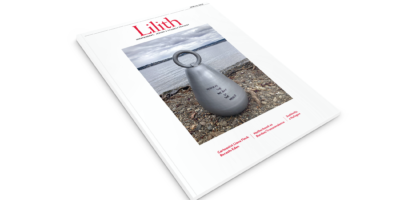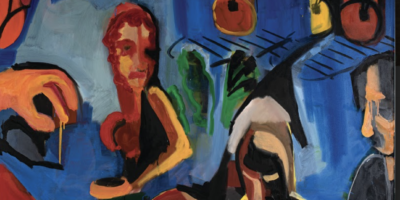
Asian, Jewish, Female & Funny
Standup comedy. You probably recognize it from various Netflix “hour-long specials”— it is the part-time gig I want to turn into my dream job. As an amateur woman comedian from a Chinese-Ashkenazi-White Bread heritage, I don’t approach or experience standup in the same ways as my white guy friends. At an open mic, I’m usually one of a handful of women and one of a few BIPOC (Black, Indigenous, People of Color). I’m likely the only Asian Jewish woman of color. I stand out. And I don’t mind most of the time, but I have this constant funny feeling (pun intended).
Standup is a craft of solitude writing and acting that takes years to master. Over eight-ish years, I learned my identities were great for comedy when wielded with pride. Yet I never feel full “belonging” in any comedy space. In lineups that showcase a specific identity, I get booked because I check two boxes—I’m funny and I’m Asian/ Jewish/Woman. When I’m in an all-woman lineup, I only belong if I set my Asian and Jewish identities aside. In an all-Asian lineup, I find it tough to be my full Jewish and woman self. I love and appreciate these showcasing spaces, as they fight for diverse representation in standup. They’re just one step in the right direction, and I will always have this inner teenage angst that I won’t ever fully belong anywhere. Cue Paramore song.
Then I found a place where I belong. My mind was blown when I met an online Asian-Jewish community through LUNAR, created by some fantastic Cali Asian-Jews. I could feel this shift within myself: gone was the token weirdo. I instead felt at home amongst the multitude, all aware of what it means to be Asian and Jewish in America.
For those not identifying as exactly that, the LUNAR docu-series lets you step in our shoes for a moment and hear our stories. Even being the only comedian in LUNAR, I felt less conditional belonging and more of a “bring all your baggage, pal, ‘cause we’re celebrating all of us” feeling. I want comedians like me to feel that anytime we do comedy. But why is “belonging” so hard to come by?
We need all multi-hyphenate comedians to shed light on the comedy of our shared human experience. When I grab the mic for 4 minutes, I break the illusion that the narratives worth listening to are ones we’ve already heard. Even if I mess up, even if I am not the funniest, I still fight for new voices to be heard with my nasal Chicago accent. When I encourage other women/ non-cis-men to start doing standup, I make room for the change I can’t enact on my own. Comedy is a way of sharing joy, and I would love to see changes in gatekeeping to diversify what is “normal” and “funny.” The comedy community is a community at the end of the day, and it’s worth it to help people up the ladder as you go.
From on the Lilith Blog, December 2021. Read the full article here.




